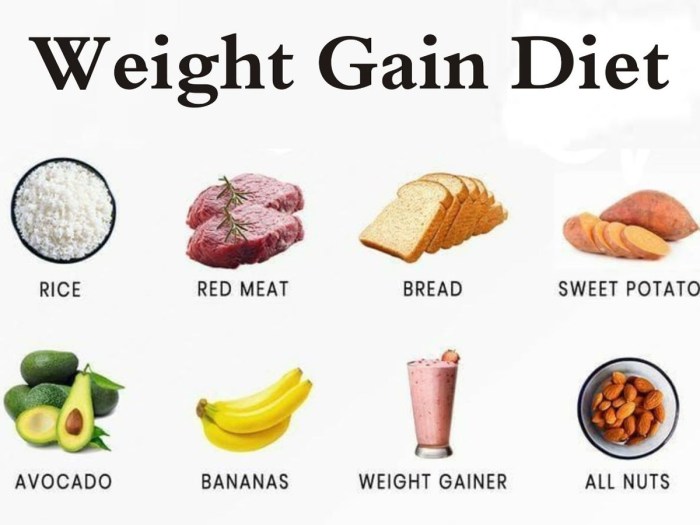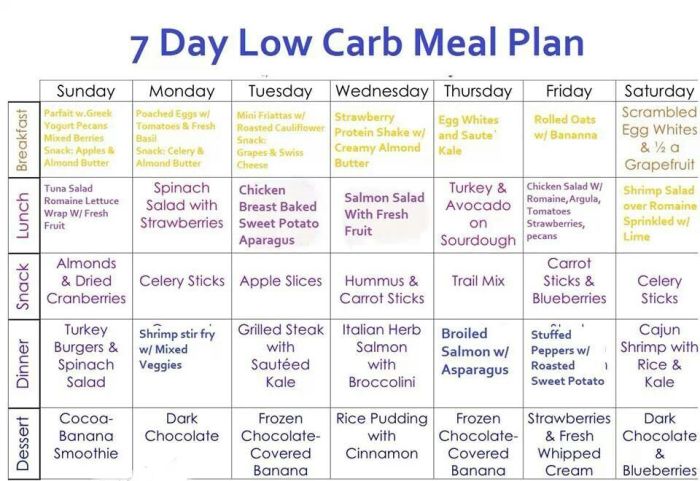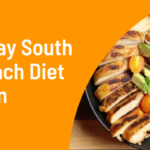2 Week Beach Diet: Want a quick, noticeable change before hitting the sand? This guide dives deep into the popular (and often misleading) world of two-week beach body diets. We’ll dissect the promises, expose the pitfalls, and ultimately, equip you with the knowledge to make informed decisions about your health and body. We’ll cover everything from understanding the typical nutritional components of these diets and comparing different plans, to exploring the potential benefits and significant risks involved in rapid weight loss.
Get ready to separate fact from fiction.
We’ll analyze common meal plans, highlight the potential dangers of rapid weight loss—including muscle loss and metabolic slowdown—and delve into the importance of sustainable, long-term dietary changes. This isn’t about a quick fix; it’s about building healthy habits that last. We’ll show you how to create a balanced meal plan focused on whole foods, incorporate effective exercise, and cultivate a positive mindset that supports lasting results.
Understanding the “2 Week Beach Diet” Concept

The term “2-week beach diet” is a marketing catchphrase, not a scientifically defined dietary approach. These diets typically promise rapid weight loss in a short timeframe, appealing to those seeking a quick fix for improved beach body appearance before a vacation or special event. However, it’s crucial to understand that the sustainability and overall health benefits of such rapid weight loss plans are often questionable.The common characteristics of these diets revolve around restrictive calorie intake and often focus on specific macronutrient ratios or the exclusion of certain food groups.
They usually involve a highly structured meal plan with pre-portioned meals or detailed recipes, limiting individual flexibility and potentially hindering long-term adherence.
Typical Nutritional Components of 2-Week Beach Diets
These diets often emphasize a low-carbohydrate approach, prioritizing protein and healthy fats. This is based on the principle that reducing carbohydrate intake can lead to a reduction in water weight and potentially trigger ketosis, a metabolic state where the body burns fat for energy. Many plans also incorporate a high intake of fruits and vegetables, providing essential vitamins and minerals while keeping the calorie count relatively low.
However, the specific macronutrient ratios and the types of foods allowed vary significantly across different plans. Some might emphasize lean protein sources like chicken breast and fish, while others might include more plant-based protein options. The inclusion of healthy fats, such as avocados and nuts, is also common, though the quantity often depends on the specific diet plan.
Examples of 2-Week Beach Diet Meal Plans
One common example might include a breakfast of Greek yogurt with berries, a lunch of a large salad with grilled chicken or fish, and a dinner of baked salmon with steamed vegetables. Another might feature smoothies with protein powder and fruits for breakfast, a light soup for lunch, and a lean protein source with vegetables for dinner. The variations are numerous, but the underlying principle remains the same: a calorie-controlled diet with a focus on nutrient-dense foods.
However, these examples are generalizations; specific plans can differ considerably.
Comparison of Three 2-Week Beach Diet Plans
The following table compares three hypothetical 2-week beach diet plans found online (note: these are examples and not endorsements of specific products or plans). Always consult with a healthcare professional before starting any new diet.
| Diet Plan | Daily Calorie Target | Macronutrient Focus | Key Restrictions |
|---|---|---|---|
| Plan A | 1200 calories | High protein, moderate fat, low carbohydrate | Processed foods, sugary drinks, alcohol |
| Plan B | 1500 calories | Balanced macronutrients, emphasis on whole foods | Red meat, refined carbohydrates |
| Plan C | 1000 calories | Very low carbohydrate, high fat | Fruits, grains, most vegetables |
Potential Benefits and Risks
The 2-Week Beach Diet, like many rapid weight loss plans, promises quick results. While some individuals may experience short-term weight loss, it’s crucial to understand the potential benefits are often overshadowed by significant risks. This section will explore both sides of the coin, examining the potential advantages alongside the considerable drawbacks associated with such restrictive diets.The allure of rapid weight loss is undeniable.
Seeing the numbers on the scale drop quickly can be motivating and rewarding in the short term. However, this rapid weight loss often comes at a cost, and understanding these potential risks is essential before embarking on such a diet.
Short-Term Weight Loss and its Limitations
Restrictive diets like the 2-Week Beach Diet often lead to initial weight loss due to fluid loss and a reduction in glycogen stores (the body’s stored carbohydrate). This initial drop is not necessarily indicative of long-term fat loss and is often unsustainable. The body quickly adapts to the calorie restriction, slowing metabolism and making further weight loss more challenging.
For example, someone might lose 5 pounds in the first week, largely water weight, giving a false sense of accomplishment before the plateau sets in.
Risks of Rapid Weight Loss
Rapid weight loss carries several health risks. One significant concern is the loss of lean muscle mass. When the body is severely calorie-restricted, it begins to break down muscle tissue for energy, weakening the body and slowing metabolism. This metabolic slowdown makes it harder to lose weight in the future, even after returning to a normal diet. Furthermore, rapid weight loss can disrupt hormone levels, potentially leading to issues such as thyroid problems or menstrual irregularities in women.
Potential Nutritional Deficiencies, 2 Week Beach Diet
Highly restrictive diets often lack essential nutrients. The 2-Week Beach Diet, with its limited food choices, may lead to deficiencies in vitamins, minerals, and fiber. For instance, eliminating entire food groups can result in a lack of crucial micronutrients like iron (from red meat and leafy greens) or calcium (from dairy products). These deficiencies can lead to fatigue, weakened immunity, and other health complications.
A balanced diet rich in fruits, vegetables, lean protein, and whole grains provides a much broader range of necessary nutrients.
Negative Impacts on Mental Health and Body Image
Focusing solely on rapid weight loss can negatively impact mental health and body image. The restrictive nature of the diet can lead to obsessive thoughts about food, guilt associated with minor dietary slips, and an unhealthy relationship with eating. This can contribute to anxiety, depression, and eating disorders. Furthermore, the pressure to achieve a specific body image can lead to low self-esteem and body dissatisfaction, even if weight loss is achieved.
A healthy approach to weight management prioritizes overall well-being, including mental health, rather than focusing solely on a number on the scale.
Realistic Expectations and Mindset: 2 Week Beach Diet

The two-week beach diet, while aiming for rapid results, shouldn’t be approached with unrealistic expectations. Sustainable weight loss is a marathon, not a sprint. Focusing on achievable goals and a holistic approach to health will yield far better, longer-lasting results than fixating solely on the number on the scale. Remember, this is a jumpstart, a tool to help you kickstart healthier habits, not a magic bullet.Understanding that rapid weight loss in such a short timeframe primarily involves water weight and glycogen depletion is crucial.
While you might see a significant drop on the scale, a large portion of that is temporary. The key is to use this period to build healthy habits that you can sustain beyond the two weeks.
Setting Realistic Weight Loss Goals
Aiming for 1-2 pounds offat* loss per week is generally considered a healthy and sustainable rate. For a two-week period, this translates to a total fat loss of 2-4 pounds. Remember, muscle weighs more than fat, so don’t be discouraged if the scale doesn’t reflect the significant changes you might see in your body composition. Focus on non-scale victories like increased energy levels, improved sleep, and fitting into clothes more comfortably.
These are strong indicators of progress. For example, instead of aiming for a specific number on the scale, focus on fitting into those jeans you’ve been wanting to wear again.
Prioritizing Overall Health and Well-being
Weight loss should be viewed as a byproduct of a healthier lifestyle, not the sole objective. Prioritize nutrient-rich foods, regular exercise, adequate sleep, and stress management. These factors contribute significantly to overall well-being and, in turn, support sustainable weight management. For instance, instead of solely tracking calories, focus on incorporating more fruits, vegetables, and lean protein into your diet.
This approach naturally leads to a healthier weight and improved energy levels.
Strategies for Managing Cravings and Maintaining Motivation
Cravings are a normal part of dietary changes. Prepare for them by having healthy alternatives readily available. Keep fruits, vegetables, and nuts on hand to satisfy hunger pangs. Drink plenty of water to help curb cravings and keep you feeling full. Consider incorporating mindfulness techniques like meditation or deep breathing exercises to manage emotional eating.
Find an accountability partner or join a support group to stay motivated. Tracking your progress, even in small ways (e.g., logging your food intake or noting how you feel after a workout), can provide a sense of accomplishment and keep you engaged.
Visual Representation of a Healthy and Balanced Approach
Imagine a balanced scale. On one side, you have a large bowl overflowing with colorful fruits and vegetables, lean proteins (chicken breast, fish, beans), and whole grains. This represents a balanced and nutrient-rich diet. On the other side, you have a smaller bowl containing occasional treats (dark chocolate, a small portion of ice cream). This represents mindful indulgence, not deprivation.
In the center of the scale, you see a person engaging in physical activity – walking, running, yoga, or any form of movement they enjoy. This represents regular exercise, a crucial component of a holistic approach. The scale is balanced, symbolizing the harmony between healthy eating, mindful indulgence, and regular physical activity. This balanced approach ensures sustainable weight management and overall well-being, not just short-term weight loss.
Seeking Professional Guidance
Embarking on any weight-loss journey, especially a restrictive diet like the 2-Week Beach Diet, requires careful consideration of your individual health needs. Ignoring this crucial step can lead to unintended consequences, undermining your efforts and potentially harming your well-being. Consulting a healthcare professional before starting any diet is paramount for ensuring safety and maximizing effectiveness.Before diving into a restrictive diet plan, it’s essential to understand the potential risks and benefits, and how those might interact with your specific health profile.
A registered dietitian or healthcare professional can provide personalized advice based on your unique circumstances, helping you navigate the complexities of weight management safely and effectively.
Benefits of Consulting a Registered Dietitian or Healthcare Professional
Seeking professional guidance offers several significant advantages. A registered dietitian can assess your current health status, dietary habits, and weight-loss goals to create a tailored plan. This personalized approach ensures the diet aligns with your individual needs and doesn’t exacerbate any underlying health conditions. They can also provide ongoing support and guidance, helping you stay motivated and overcome challenges along the way.
Furthermore, a healthcare professional can monitor your progress and make necessary adjustments to your plan as needed, ensuring your safety and well-being throughout the process. This proactive approach minimizes the risk of nutrient deficiencies or other health complications often associated with restrictive diets.
Potential Health Conditions Aggravated by Restrictive Diets
Certain health conditions can be negatively impacted by restrictive diets. For example, individuals with diabetes may experience dangerous fluctuations in blood sugar levels if their carbohydrate intake is drastically reduced without proper medical supervision. Similarly, those with kidney disease may need to carefully manage their protein and potassium intake, which can be challenging on a restrictive diet. People with eating disorders are particularly vulnerable and should always work closely with a medical team.
Restricting calories too severely can also lead to nutrient deficiencies, impacting energy levels, mood, and overall health. These are just a few examples; a professional assessment is crucial to identify potential risks based on your specific medical history.
The Role of a Nutritionist in Creating a Personalized and Safe Weight Management Plan
A nutritionist plays a vital role in crafting a personalized weight management plan that is both effective and safe. They conduct a thorough assessment, considering factors such as your medical history, current diet, lifestyle, and weight-loss goals. This comprehensive approach allows them to create a plan that addresses your specific needs and avoids potential health risks. They can help you make informed food choices, teach you portion control techniques, and provide guidance on healthy eating habits that you can sustain long-term.
They also offer support and accountability, helping you stay on track and achieve your weight-loss goals safely and sustainably. They can also adjust the plan based on your progress and any challenges you encounter.
Resources for Finding Qualified Healthcare Professionals
Finding qualified healthcare professionals is straightforward. You can start by contacting your primary care physician for referrals. Many hospitals and clinics also employ registered dietitians and nutritionists. Online directories, such as the Academy of Nutrition and Dietetics (eatright.org) in the US, provide searchable databases of registered dietitians. Remember to verify credentials and experience before making an appointment.
A consultation is an investment in your health and well-being; choosing a qualified professional is crucial.
Ultimately, the “2 Week Beach Diet” concept, while appealing for its speed, often falls short in delivering sustainable results. Prioritizing long-term health and well-being through balanced nutrition and regular exercise is far more effective than chasing temporary weight loss. Remember, consult a healthcare professional before making any significant dietary changes. This guide empowers you to make informed choices, focusing on sustainable practices that contribute to your overall health and happiness—long after your beach vacation is over.
Don’t just look good on the beach; feel good all year round.

